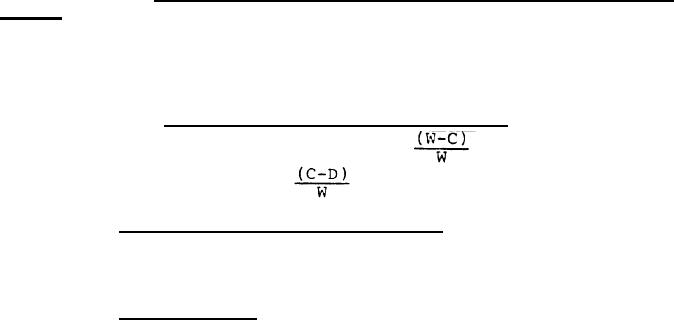 |
|||
|
Page Title:
Resin and additives, kraft and polyester staple fiber |
|
||
| ||||||||||
|
|  MIL-C-48868E (AR)
4.5.1.3.5 Resin and additives, kraft and polyester staple
fiber. Calculate the percent resin and additives, kraft and
polyester staple fiber as follows:
% Resin + % additives + % kraft + % polyester staple fiber
= 100 - (% NC + % Acrylic + % DPA)
4.5.1.3.6 Methylene chloride extractable. Calculate the
total methylene chloride extractable
x 100 and the
total acetone extractable
x 100
4.5.2 Stability heat test (134.5C). Samples shall be
tested in accordance with MIL-STD-286, Method 404.1.2, heat
tests at 134.5C. Test is considered destructive and-samples
should be removed from lot.
4.5.3 Residue test. The test shall be performed at a
Government Proving Ground. Empty containers will be loaded
with M10 propellant and sealed in accordance with dwg. 9312698.
Loaded containers shall then be assembled to inertfilled M720
cartridges in accordance with the appropriate zones as listed
in 4.5.3.1 and 4.5.3.2. Test rounds shall be conditioned for a
minimum of eight hours at 70F plus or minus 5F and fired
within two minutes after removal from conditioning environment.
Rounds shall be fired at night from a M224 mortar (standard or
ballistic tube) at a firing elevation of 800 roils, at a uniform
rate of twelve to fifteen rounds per minute. The time of
descent for the round from muzzle to base shall not be more
than two seconds. The tube shall be dry swabbed and the
elevation checked between the firing of each group.
Observation shall be made for hangups (see 6.8), secondary
flame, and flaming debris. The lot shall be accepted if no
hangups occur, no rounds exhibit secondary flame at any zone,
and no flaming debris reach the ground at zone 4 only.
If a hangup occurs, the test round shall be removed from
the tube and an examination shall be conducted of the tube and
test round to determine if the hangup was caused by residue.
If the hangup was not caused by residue, the test shall be
continued.
If the hangup was caused by residue, firing of test
rounds shall be discontinued. The tube shall be dry swabbed
and a group of reference rounds shall be immediately fired.
32
|
|
Privacy Statement - Press Release - Copyright Information. - Contact Us |